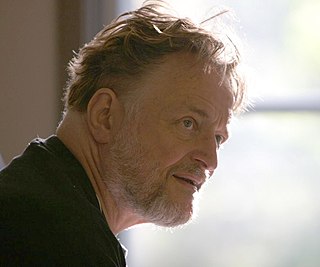
John Horton Conway was an English mathematician. He was active in the theory of finite groups, knot theory, number theory, combinatorial game theory and coding theory. He also made contributions to many branches of recreational mathematics, most notably the invention of the cellular automaton called the Game of Life.
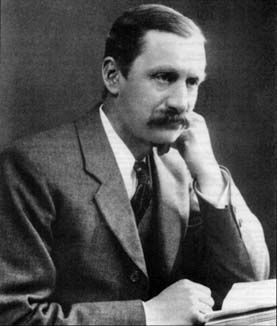
William Burnside was an English mathematician. He is known mostly as an early researcher in the theory of finite groups.
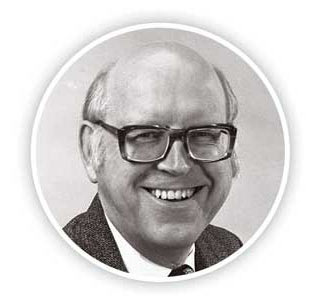
Allen Newell was an American researcher in computer science and cognitive psychology at the RAND Corporation and at Carnegie Mellon University's School of Computer Science, Tepper School of Business, and Department of Psychology. He contributed to the Information Processing Language (1956) and two of the earliest AI programs, the Logic Theorist (1956) and the General Problem Solver (1957). He was awarded the ACM's A.M. Turing Award along with Herbert A. Simon in 1975 for their contributions to artificial intelligence and the psychology of human cognition.

Raoul Bott was a Hungarian-American mathematician known for numerous foundational contributions to geometry in its broad sense. He is best known for his Bott periodicity theorem, the Morse–Bott functions which he used in this context, and the Borel–Bott–Weil theorem.
Sergei Petrovich Novikov was a Soviet and Russian mathematician, noted for work in both algebraic topology and soliton theory. He became the first Soviet mathematician to receive the Fields Medal in 1970.

Richard Kenneth Guy was a British mathematician. He was a professor in the Department of Mathematics at the University of Calgary. He is known for his work in number theory, geometry, recreational mathematics, combinatorics, and graph theory. He is best known for co-authorship of Winning Ways for your Mathematical Plays and authorship of Unsolved Problems in Number Theory. He published more than 300 scholarly articles. Guy proposed the partially tongue-in-cheek "strong law of small numbers", which says there are not enough small integers available for the many tasks assigned to them – thus explaining many coincidences and patterns found among numerous cultures. For this paper he received the MAA Lester R. Ford Award.

Friedrich Ernst Peter Hirzebruch ForMemRS was a German mathematician, working in the fields of topology, complex manifolds and algebraic geometry, and a leading figure in his generation. He has been described as "the most important mathematician in Germany of the postwar period."

Nigel James Hitchin FRS is a British mathematician working in the fields of differential geometry, gauge theory, algebraic geometry, and mathematical physics. He is a Professor Emeritus of Mathematics at the University of Oxford.

John Lighton Synge was an Irish mathematician and physicist, whose seven-decade career included significant periods in Ireland, Canada, and the USA. He was a prolific author and influential mentor, and is credited with the introduction of a new geometrical approach to the theory of relativity.
Kenkichi Iwasawa was a Japanese mathematician who is known for his influence on algebraic number theory.
Reuben Louis Goodstein was an English mathematician with an interest in the philosophy and teaching of mathematics.

Charles Terence Clegg "Terry" Wall is a British mathematician, educated at Marlborough and Trinity College, Cambridge. He is an emeritus professor of the University of Liverpool, where he was first appointed professor in 1965. From 1978 to 1980 he was the president of the London Mathematical Society.
Andrew James Granville is a British mathematician, working in the field of number theory.
Martin Joseph Newell was an Irish mathematician and educationalist, who served as President of University College Galway from 1960 to 1975.

Bernhard Hermann Neumann was a German-born British-Australian mathematician, who was a leader in the study of group theory.
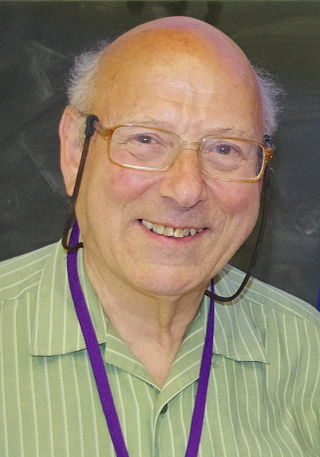
Peter Michael Neumann OBE was a British mathematician. His fields of interest included the history of mathematics and Galois theory.

Gaven John MartinFRSNZFASLFAMS is a New Zealand mathematician. He is a Distinguished Professor of Mathematics at Massey University, the head of the New Zealand Institute for Advanced Study, the former president of the New Zealand Mathematical Society, and former editor-in-chief of the New Zealand Journal of Mathematics. He is a former Vice-President of the Royal Society of New Zealand [Mathematical, Physical Sciences Engineering and Technology. His research concerns quasiconformal mappings, regularity theory for partial differential equations, and connections between the theory of discrete groups and low-dimensional topology.
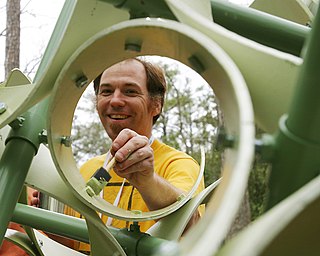
Chaim Goodman-Strauss is an American mathematician who works in convex geometry, especially aperiodic tiling. He retired from the faculty of the University of Arkansas and currently serves as outreach mathematician for the National Museum of Mathematics. He is co-author with John H. Conway and Heidi Burgiel of The Symmetries of Things, a comprehensive book surveying the mathematical theory of patterns.

Thomas J. Laffey is an Irish mathematician known for his contributions to group theory and matrix theory. His entire career has been spent at University College Dublin (UCD), where he served two terms as head of the school of mathematics. While he formally retired in 2009, he remains active in research and publishing. The journal Linear Algebra and Its Applications had a special issue to mark his 65th birthday. He received the Hans Schneider Prize in 2013. In May 2019 at UCD, the International Conference on Linear Algebra and Matrix Theory held a celebration to honor Professor Laffey on his 75th birthday.
Ted Hurley is an Irish mathematician and retired university professor specialising in algebra, specifically in group theory, group rings, cryptography, coding theory and computer algebra. In 1976, Hurley was a founding member of the Irish Mathematical Society, and he served as its inaugural secretary (1977-1979).














